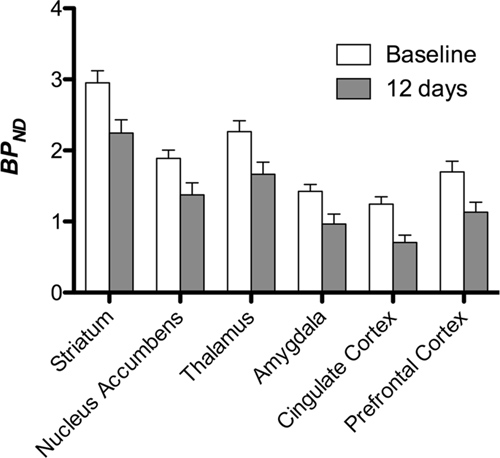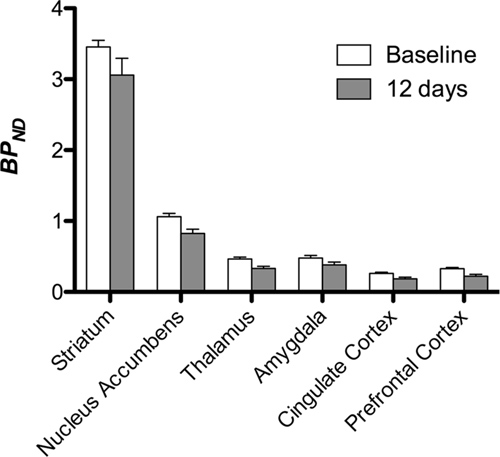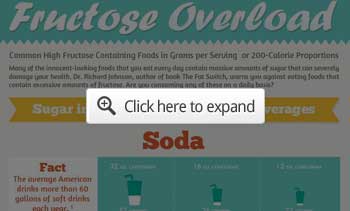Avoid Burnout Before You're Already Burned
If you're feeling tired, cranky, stressed out and overwhelmed, you're likely heading quickly down the slippery slope to burnout. Burnout, which is a term used to describe physical or emotional exhaustion that's typically the result of prolonged stress or frustration,1 is a common human condition, but definitely not a desirable one.
A 2018 Gallup study of nearly 7,500 full-time employees found that 23% feel burned out at work always or very often, while another 44% said they sometimes feel burned out. That amounts to about two-thirds of full-time employees feeling burnout while they're at work.2 Yet, work is only one route to burnout.
Other areas of life, such as control, reward, community, fairness and values3 — and how well each of these is served in your life — also correlate with burnout, some of which are more easily tackled and changed than others. Perhaps the best lesson on burnout, however, is to take action against it before it has consumed you.
Once you're officially burned out, it can be hard to dig yourself out of the hole. But if you make proactive changes ahead of time, on a regular basis and certainly if you feel yourself start to slide downhill, you may be able to avoid burnout entirely, staying emotionally and physically strong instead.
Three Anti-Burnout Foundations: Sleep, Diet and Exercise
Taking care of your body on a physical level is the foundation of avoiding burnout, and this starts with the three pillars of health: proper sleep, diet and exercise. Data from the U.S. CDC suggests one-third of U.S. adults are not getting the recommended seven hours of sleep each night,4 and most people likely need closer to eight hours to be healthy.
When you don't sleep, your mood, productivity and inclination to make positive lifestyle choices can suffer, and your body's ability to handle stress will be impaired. Poor sleep lessens a person's self-control, which in turn increases the rate of selfish impulses leading to unwanted behaviors — even workplace theft.5
Insufficient sleep, in fact, predicts clinical burnout and combines with other risk factors, namely preoccupation with thoughts of work during leisure time and high work demands, to increase burnout risk.6
Not only is getting proper sleep important to avoiding burnout but it can also help you recover from burnout once it occurs.7 What you eat is also fundamentally important. A healthy diet that optimizes mitochondrial function and limits inflammation will bolster your body's ability resilience and ability to ward off stress, providing you with the energy for physical and mental strength.
Optimizing your omega-3, vitamin D and magnesium levels can also help reduce stress and positively impact brain health. Exercise is the third essential to avoiding burnout, and exercising three to five days a week for 45 minutes has been suggested as the "sweet spot" that leads to the greatest mental health gains.8
In a large study involving 1.2 million U.S. adults, participants reported their activity levels for one month along with rating their mental well-being. On average, people who exercised reported 1.5 fewer days of poor mental health in the past month compared to those who did not.9
This may be, in part, because exercise has been found to create new neurons designed to release the GABA neurotransmitter, which inhibits excessive neuronal firing, helping to induce a natural state of calm.10
Align Your Life With Your Personality
If you're living a lifestyle that's contradictory to your true personality or values, it can also cause mental fatigue and anguish, facilitating burnout. In The New York Times, Robert L. Bogue, co-author of "Extinguish Burnout: A Practical Guide to Prevention and Recovery," explained:11
"Self-care is dependent on the individual. It is based on what helps them to feel more like they're in their natural state, which is the thing, place or feeling that would happen if there were no pressure on them — the thing they would want to do.
When you're operating outside of your natural state, you are consuming energy. The more in alignment you become, the less you're demanding of yourself and the more personal agency you build up."
Toward this end, it's important to take time to recharge in the way that feels right to you. For some, recharging may require spending time with others while some people can only regroup via solitude. Along these lines, prioritize activities that make you feel energized while avoiding those that drag you down.
This likely means you'll need to learn to say "no" and make a point to engage in activities that make you happy and create "flow." Flow, according to psychologist Mihaly Csikszentmihalyi, is the secret to happiness and occurs when you are completely absorbed in an activity (often one that involves creativity).12
When you're immersed in flow, your sense of time becomes distorted because nearly all of your brain's available inputs are devoted to the activity at hand, Csikszentmihalyi states. If you're depressed and unable to fully give your attention to the present moment, and as a result find time is agonizingly slow, mindfulness-based therapies may be very helpful, particularly in cases of a depressed perception of time.13
As Csikszentmihalyi said, "The best moments in our lives are not the passive, receptive, relaxing times … The best moments usually occur if a person's body or mind is stretched to its limits in a voluntary effort to accomplish something difficult and worthwhile."14
Taking the time to pursue such moments can be a key to avoiding the burned out feeling that comes from excessive time spent on activities you do not enjoy or which drain you of mental and physical energy.
Work With Your Reality
To some extent, you have to learn to be happy and manage stress within your existing reality. You can take steps to start a new career or otherwise change aspects of your life that are contributing to burnout, but in the immediacy it's important to, at a bare minimum, use strategies to control your day-to-day work stress. This may include meditation, exercise or time with family and friends.
Ideally, find work that suits your personality and gives you meaning and purpose, but if you don't have that, remember that you can find purpose in nonwork pursuits including volunteering and hobbies. Elizabeth Grace Saunders, a time management coach and author of "The 3 Secrets to Effective Time Investment, How to Invest Your Time Like Money, and Divine Time Management," wrote in The New York Times:15
"Another alternative is to stop expecting satisfaction in these areas within your job and, instead, seek opportunities outside of work that fulfill these core needs. For example, maybe you volunteer with an organization where you feel appreciated, find the activities intrinsically rewarding, have values alignment and a strong sense of community.
Or maybe you invest time in your family or friends to cultivate a feeling of belonging, fulfillment and autonomy. When you're 'filled up' by how you invest your time outside of work, and you feel supported by people who know and care about you, you have a buffer against the drain that may exist in the office.
You may not have the ability to change everything you don't like about your job, but you do have the ability to improve how good you feel about yourself and life in general."
Foster Self-Acceptance
Self-acceptance is an important part of psychological health and involves accepting all of your attributes, both positive and negative. "Self-acceptance enables an individual to appropriately evaluate his/her efficient and inefficient features and accept any negative aspects as parts of their personality," researchers wrote in the journal PLOS One.16
Self-acceptance includes three main attitudes, including love for your body, even if you're not completely satisfied with your weight, fitness level or any other physical attribute. It also involves the ability to protect yourself from others' negative judgments, such that you don't let it phase you if other people judge you.
Self-acceptance also involves recognizing and appreciating your own capabilities and believing in yourself. People who have high levels of self-acceptance tend to also have higher levels of self-esteem and interpersonal satisfaction. They're also less likely to suffer from depression, anxiety, eating disorders and obesity.17
In the video above, Julie Schiffman demonstrates a simple technique to help you love and accept yourself — something most of us can benefit from. Schiffman is a practitioner of the Emotional Freedom Techniques (EFT), which is a form of psychological acupressure that involves tapping with the fingertips on specific meridians in order to clear negative emotions and thought patterns. This is but one way to bring more self-love into your life, akin to giving your inner critic a giant bear hug.
How to Heal Burnout
Preventing burnout is easier than recovering from it, but it's possible to get better by focusing on balance in key areas of your life, namely physical, spiritual, work and relationship aspects of your life. First, it's important to be aware of the signs of burnout and take action as soon as (or ideally before) they occur:18
- Physical exhaustion, signaled by chronic fatigue, insomnia, forgetfulness, impaired concentration, inattentiveness, physical illness and loss of appetite
- Emotional exhaustion, a "feeling of internal collapse," loss of perspective, detachment, irritability, frequent anger, loss of enjoyment, pessimism, increasing isolation, apathy and hopelessness
- Reduced performance and productivity despite best efforts, loss of self-esteem, feeling like a failure
- Depression
Burnout predicts a number of physical and psychological effects as well, including the following, which highlights the importance of preventing and healing from this deleterious condition:19
|
Coronary heart disease |
Hospitalization due to cardiovascular disorder |
|
|
Musculoskeletal pain |
Changes in pain experience |
Prolonged fatigue |
|
Headaches |
Gastrointestinal issues |
Respiratory problems |
|
Severe injuries |
Mortality before the age of 45 years |
|
|
Depressive symptoms |
Use of psychotropic and antidepressant medications |
Hospitalization for mental disorders |
|
Job dissatisfaction |
Absenteeism at work |
In the interview above, Dr. Joseph Maroon, professor of neurosurgery at the University of Pittsburgh Medical Center and author of "Square One: A Simple Guide to a Balanced Life," speaks on the topic of burnout — something he, too, once struggled with.
He explains that recovering from burnout (or avoiding it in the first place) boils down to finding and maintaining a balance between your work life, physical activities, relationships and spirituality or mindfulness. Only by nurturing all aspects of life can you feel truly fulfilled and centered, so if you find yourself feeling off balance, place your attention on the areas you've been neglecting. As Maroon noted:
"The point is we can't escape adversity. We can't escape stress. But what happened to me is I didn't recognize how bad off I was in a unidimensional [all work] life.
I didn't recognize it until I was working at a truck stop as a pump jockey … I think the most important thing I missed was mindfulness. I didn't have insight into where I was; insight on how I got there, when everything was lost."
Likewise, Saunders also suggests following your inner truth as a key to fulfillment: "By investing your time based on the truth of your body, personality and reality, you can reduce your risk of burnout."20
from Articles https://ift.tt/38RrlfO
via IFTTT


